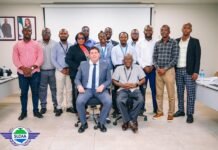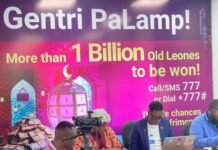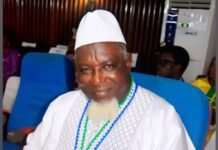Op-Ed by Faiza Mohamed, Director, Equality Now, Africa Office, and Hannah Yambasu, Executive Director WAVES, Sierra Leone
When the Economic Community of West African States (ECOWAS) Court of Justice ordered the Government of Sierra Leone to lift the ban on pregnant girls from accessing education on December 12, 2019, there was a huge sigh of relief from the girls as they got a chance to learn once again.
As the broader gender and equality rights community, on the other hand, we held our breath as it was unclear how the Government would respond to the raft of comprehensive directions from the ECOWAS Court. The Court, over and above declaring the ban illegal, called for its unconditional revocation and to address the factors that caused the minors to get pregnant in the first instance. We were unsure if the Government would take these recommendations or leave them collecting dust on the proverbial shelf.
At that point in Sierra Leone, statistics on the ground reflected high numbers of sexual violence, including against minors. President Maada Bio even declared sexual violence a national disaster in February 2019 following a brutal rape of a five-year-old in Freetown, rendering her paralyzed. This case, unfortunately, was not an uncommon incident. It was, therefore, momentous when President Bio accepted the ECOWAS Court’s judgement and breathed life into it through statute. The Government of Sierra Leone proposed the development of two policies; radical inclusion to ensure that no child was left out of the education system and comprehensive protection that would address factors that resulted in sexual violence or sexual exploitation of school-going children.
These proposed policies were not only progressive but quite comprehensive as they sought to protect school-going children, including girls, and to keep them in school.
When we zoom out to today, forward to today, which is exactly three years since the Government lifted the ban, and ask – has the judgement made a difference in Sierra Leone? Was it worth it? Are Sierra Leonean girls back in school without exception? Have the risks and vulnerabilities that resulted in the girls getting pregnant in the first instance been addressed? Have the sexual predators who raped or exploited these school-going girls been apprehended? Is the Sierra Leonean society better for it?
The truth is there is no simple answer to these critical questions. But, there is some good news: From 2020, pregnant girls were granted access to education unreservedly. This was a big step in addressing their fundamental right to education and preventing them from being discriminated against based on their status, especially since this status largely arose from either violation or exploitation. The good news is that the Government enacted policies to underpin the right to education, including all children regardless of their status, and address the challenges that threatened this access.
The challenge, however, is still ahead of us. Whereas a few non-state actors have cascaded these two policies in select towns and provinces, protecting all school-going children from sexual violence is not nationwide. Neither is the strengthening of referral pathways in the event sexual violations happen. Therefore, all parties, state, and non-state, must adopt a multi sectoral approach to prevent and respond to sexual offences, especially against school-going girls. There is need for a comprehensive and coordinated approach bringing together all actors to ensure perpetrators of sexual violence are apprehended and held to account. It is also critical to empower young girls and strengthen community structures to appreciate gender equality in their contexts as Sierra Leone works towards ensuring a just and fair world for women and girls. This approach is possible and has been applied in the provinces of Bo and Kenema and the capital, Freetown, by organizations such as Women Against Violence and Exploitation in Society (WAVES) and Defence for Children International (DCI) in collaboration with state actors such as the local Family Support Units. The resultant effect has been a critical lesson- that we can succeed in ensuring girls’ access to education in Sierra Leone and keep them safe from sexual violence and sexual exploitation.
And therefore, in response to the question, was it worth it? The answer is a resounding yes, as the current context tells us. With the right coordination, the best is yet to come.




